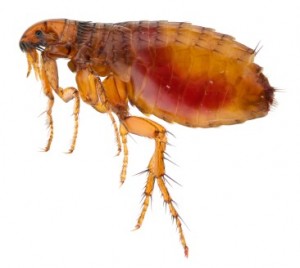PESTUK Insects that Bite
In Pests
Insects that Bite
As the temperatures increase and Summer approaches people are finding themselves bitten more and more as the season goes on.
Common insect bites here in the UK will be from:
- Mosquito bites
- Tick bites
- Horsefly bites
- Midge or Gnat bites
- Bedbug bites
- Mite bites
- Flea bites
- Spider bites
Bed bugs

Becoming more prevalent due to the increase of travel associated with trips abroad, bed bugs attach to luggage and clothing. They can also attach themselves to second hand furniture. Bed bugs are mainly active at night, feeding on human blood and hiding in bed frames, skirting boards and cracks or within bedroom furniture. They can survive up to a year without feeding.
Bed bug bites are red marks or lumps, some people can even develop severe skin reactions and can have disturbed sleep, however some people will not react to bites and couples can find one person being bitten and the other appears to be untouched.
These bites will usually be in rows on the neck, shoulders, back,or the legs and arms.
Fleas

The most common type of flea is the Cat Flea, adult fleas are small averaging 2mm in size, they are wingless with legs designed for jumping.
Adult fleas are parasitic on warm blooded animals, the larval stage will feed on skin, feathers and blood rich faeces of the adult form flea.
Bites on humans will be around the ankles and lower legs, these bites can cause irritating allergic reactions. The bites are typically red spots 5mm in diameter. If the host animal is not available they will feed on humans. They prefer women and children rather than men. They can move on to beds, other furniture and clothing, but will soon return to carpeted areas.
Bird Mites
Most active during Spring and early Summer, they feed on common birds such as pigeons, starlings, sparrows and poultry. Bird mites have short life cycles, usually seven days, they can rapidly generate large populations, and when the young birds leave the nest or die many mites will spread out from the nest and throughout the dwelling searching for new hosts.
Bird mites can not survive on human blood, the test biting, where they inject their saliva while searching for a new bird host, can lead to severe irritation with rashes and intense itching. Scratching of bites can result in secondary infections.
Bird mite bites will not be in specific areas of the body and an infestation can not be sustained on human blood, while the nest area is present the mites will remain.
Prevention
To treat infestations of biting insects it is recommended to contact a proffesional pest control company. The British Pest Control Association, the leading trade assocoiation representing those with a professional interest in the eradication of public health pests act in the interest of member companies and the pest management industry in the UK. All companies joing the BPCA must prove their competence and expertise before membership is given. With insect infestaions it is strongly recommended that a pest control company be used to treat and eradicate the problem.
To prevent bites from other insects occuring when outside it is recommended that you cover exposed skin – if you’re outside at a time of day when insects are particularly active, such as sunrise or sunset, cover skin by wearing long sleeves and trousers. Wear shoes when outdoors. Apply insect repellent to exposed skin – repellents that contain 50% DEET (diethyltoluamide) are most effective.
For more information about biting insects and health visit- https://www.nhs.uk/conditions/insect-bites-and-stings/symptoms/
Book an appointment for a treatment by calling 0800 026 0308 or 0330 100 2811, or email us at services@pestuk.com

